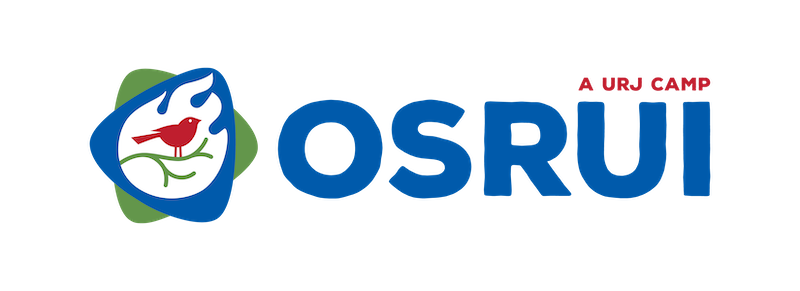A summer at OSRUI brings experiences that last a lifetime. Among the most unique opportunites is the program called חלוצים Halutzim. חלוצים means “pioneers” and is different than any other session in camp – it is a completely immersive Hebrew environment. From sunup to sundown, חלוצים campers speak Hebrew with the staff and with each other.
If this sounds impressive, it is! Before breakfast, an animated staff member, frequently the exceptional Rosh Eidah (unit head) Rafi Ellenson, runs through (literally) the Hebrew names of all the food and utensils. Hanichim (campers) spend two hours a day of learning Hebrew through songs, poetry and day to day scenarios. Their educational programs often focus on Israel, its people, history and culture. And they enjoy all the other aspects of ORUI, including the agam (lake), the breicha (pool), sports and more.
The most important element of חלוצים are the מדריכים madrichim (counselors), who historically have been mostly Israeli (this summer it’s near 100%). Most of them have served in the IDF as commanders and/or officers, often in very sensitive intelligence positions. All in all, a pretty responsible bunch.
As faculty attached to חלוצים, I’ve been wondering what happens when an Israeli soldier comes to an American URJ summer camp, even one as Israeli-centric as OSRUI? How do Israeli מדריכים acclimate (or as the modern Hebrew word says, l’hitaklem) to OSRUI culture, which, at one and the same time, is similar and very different than the Israel army?
I’ve noticed a number of things: For starters, while there is a hierarchy of authority among staff, it’s not nearly as formal as in the army. I jokingly said to one of the מדריכים, “Ken, Hamefaked” (yes, officer). He smiled wistfully. “It’s been awhile since I’ve heard that!” The מדריכים are authority figures, to be sure, but their task pales in comparison to the army. It’s a big cultural shift.
In addition, the Israelis have a keen sense of responsibility for the well-being of their campers. If someone is late to a program, they notice. If someone seems out of sorts, they respond. They identify and try to solve issues before they become problems. They like things to be organized but are ready to improvise creatively.
Most impressive, the Israeli מדריכים are strong and capable on the outside yet sensitive and empathic on the inside. The have levavot shomot – listening hearts – and they excel at being able to transmit a love of Israel to the chanichim. The magic of Chalutzim begins with the מדריכים – and it’s been a joy and a privilege to work with them and their leader, Rafi Ellenson this summer.
Rabbi David Cohen serves on Chalutzim segel and as rabbi at Congregation Sinai in Milwaukee, WI


